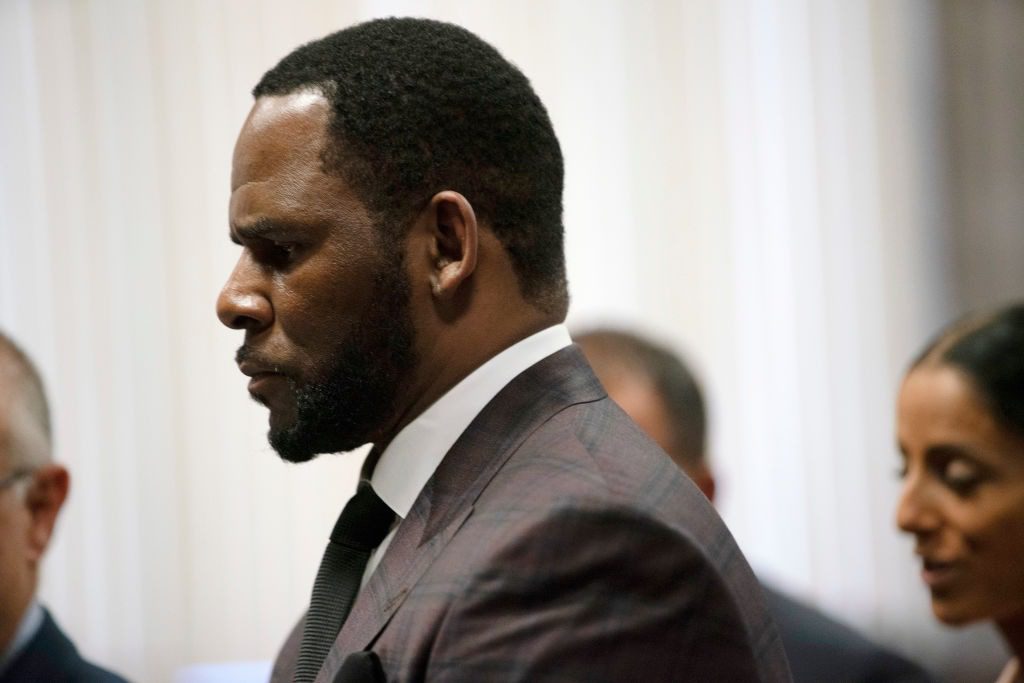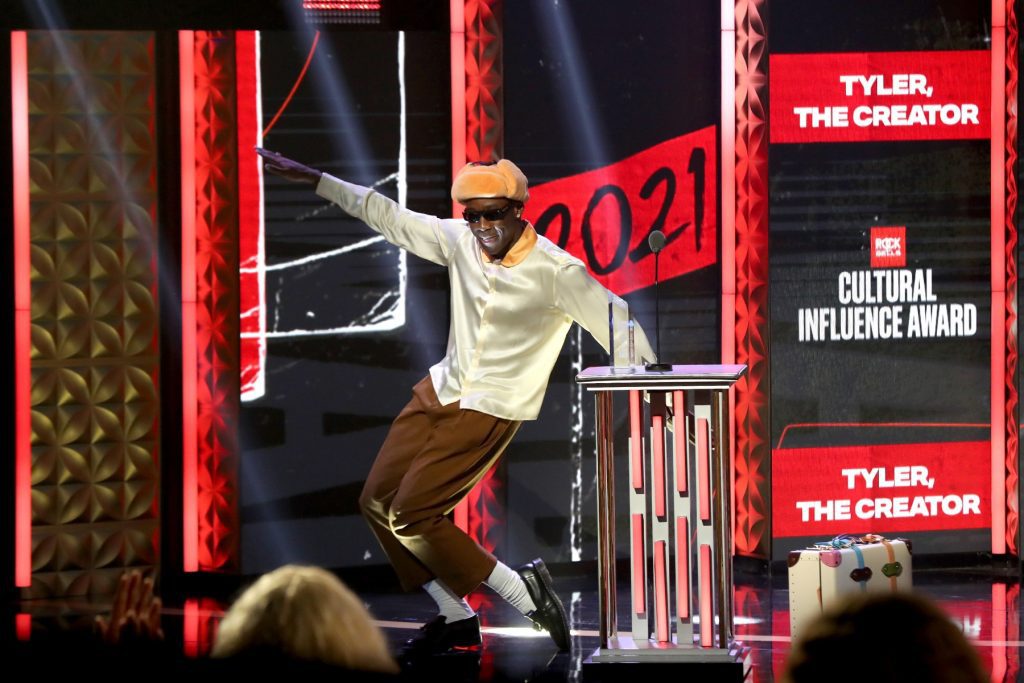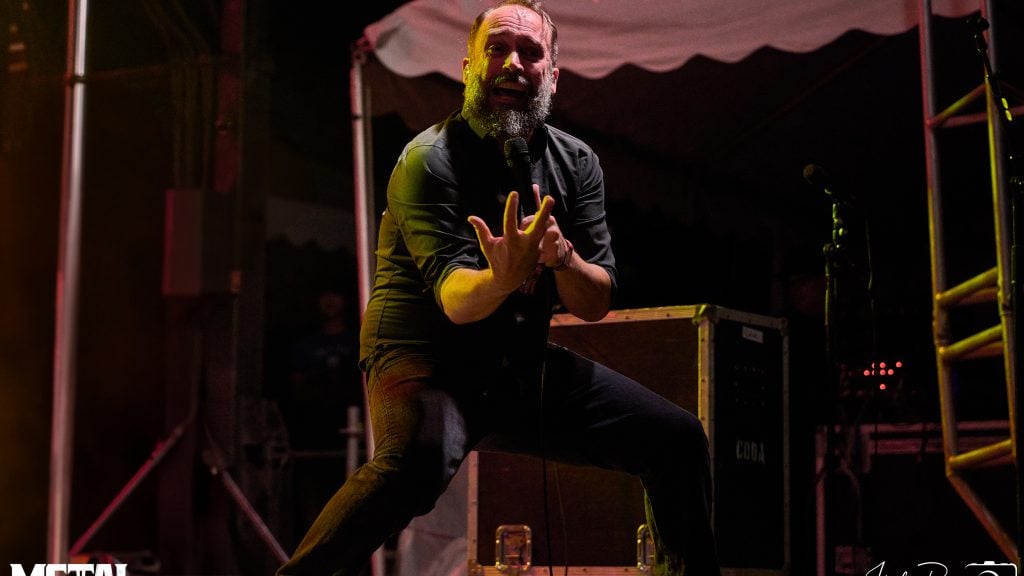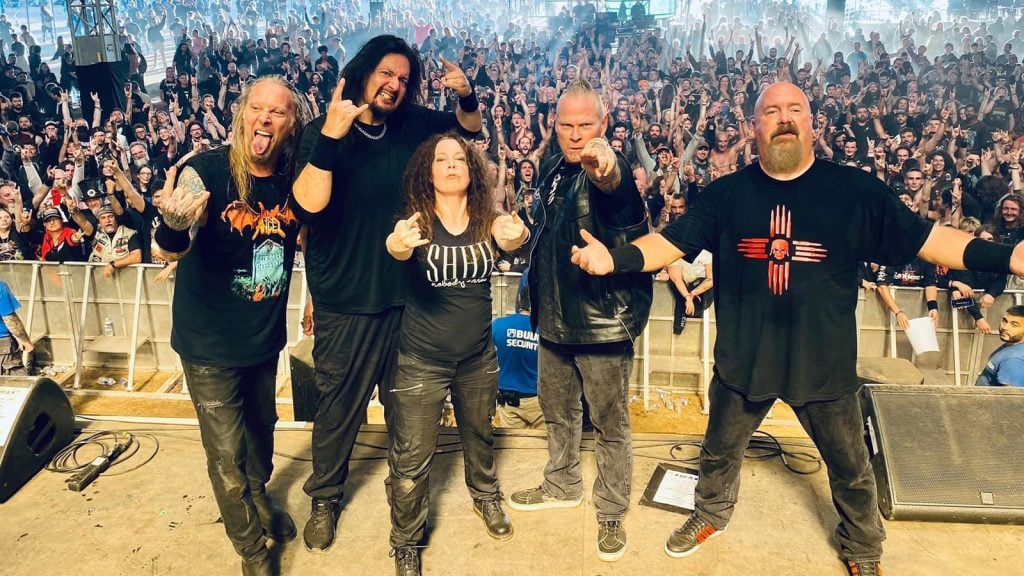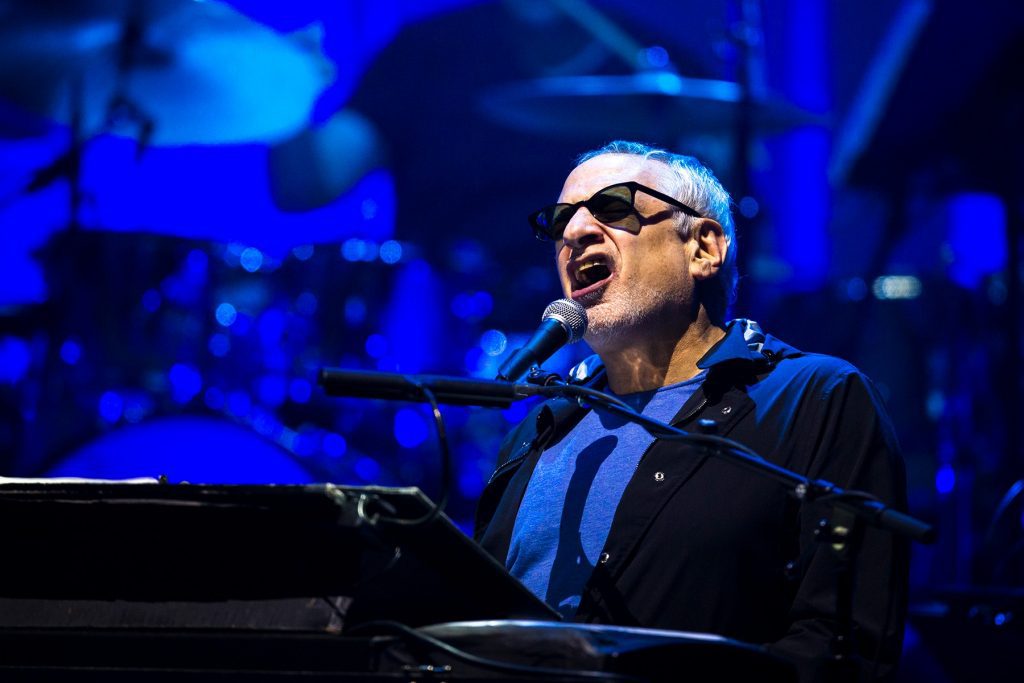
Steely Dan’s Donald Fagen Talks Lessons in Sleaze and a Rabbi With a Fastball
In chaotic times, Steely Dan’s Donald Fagen found calm and comfort in what some would consider chaotic music: Bebop records by Charlie Parker and Dizzy Gillespie were his pandemic soundtrack, and as he tells IndieLand, “It’s weird; a lot of people get anxious when they hear bebop, but it relaxes me. You know why? I think what makes me anxious sometimes, listening to jazz, is I feel like just the level of creativity is not what I expect. And with Charlie Parker, you’re never disappointed.”
Along with soothing his spirit with bebop, Fagen spent the pandemic working on new material for a solo album that will be his first since 2012’s Sunken Condos (“One song I particularly like is called ‘The Stellar Bartender,’” he quips. “About a very empathetic bartender”). He also dug into novels like Jennifer Egan’s A Visit From the Goon Squad and Ottessa Moshfegh’s My Year of Rest and Relaxation, while perfecting the mixes of two recently released live albums: Northeast Corridor, which offers a handful of selections from Steely Dan’s 2019 tour, and a full-live version of Fagen’s 1982 solo album, The Nightfly.
blogherads.adq.push(function () {
blogherads
.defineSlot( ‘medrec’, ‘gpt-dsk-tab-article-inbody1-uid0’ )
.setTargeting( ‘pos’, [“mid-article”,”mid”,”in-article1″,”mid-article1″] )
.setSubAdUnitPath(“music//article//inbody1”)
.addSize([[300,250],[620,350],[2,2],[3,3],[2,4],[4,2]])
;
});
In a few weeks, Fagen will begin rehearsals for a North American tour, his first shows since November 2019 (the tour was supposed to start a bit earlier in October, but those dates were pushed to 2022). In a chat with IndieLand, Fagen discussed the new live records, prepping for the tour and much more — from the days he and late Steely Dan co-founder Walter Becker spent selling songs in the Brill Building to gawking at rich folks when they moved to L.A. to his childhood rabbi with the mean fastball.
How did these new live albums came about?
Towards the end of our 2019 tour, we had 16 dates left in the Northeast, and we hadn’t been recording, but the band was sounding so good that I asked our front-of-house mixer, Michael “Coach” Connor, if he could make a professional recording off the board. And he said, “I gotta rent a few pieces of equipment, but yeah, I could do that.” Then I kind of forgot about it, but when I heard them after the tour was over, I was really surprised at how clean the recording was and how well the band was playing. So I said, I think people would be interested in hearing what the Steely Dan Band did with some of the older material and also with The Nightfly stuff, which we play occasionally.
You’ve been doing a lot of shows where you play albums in their entirety. Do those present any particular challenges?
People seem to really love it. It’s a little more stressful than playing a regular show because you play them straight through without a break, and I’m always hoping I remember all the chords [laughs]. And I think everyone’s conscious of not screwing it up. But it’s a lot of fun, and when you go through the whole album and you play the last note, people go nuts.
Tell me about prepping for this upcoming tour.
Our rehearsals haven’t started, so I haven’t gotten into it yet. But we’re just going to brush up on some stuff, maybe add a few new things to dress up to show a little bit… What’s really convenient is that everyone can read music [laughs]. You don’t have to sing parts — I mean, I do if I think of something offhand. But generally speaking, we’ve got charts, although most of the players don’t use the charts anymore. But for something new, we just hand out some charts and work through it.
In your book, Eminent Hipsters, you write about penning songs with Walter for the first time, and it really seems like it was just about like trying to make each other laugh. Did that remain a constant for you two?
Yeah, pretty much, right until the last song we ever wrote. It was one of my favorite things, to get together with him and try to crack him up. And vice versa.
blogherads.adq.push(function () {
blogherads
.defineSlot( ‘medrec’, ‘gpt-dsk-tab-article-inbody2-uid1’ )
.setTargeting( ‘pos’, [“mid-article2″,”mid”,”in-article2″,”mid-article”] )
.setSubAdUnitPath(“music//article//inbody2”)
.addSize([[300,250],[300,251],[620,350],[2,4],[4,2],[3,3]])
.setLazyLoadMultiplier(2)
;
});
That sense of humor is in your lyrics, but did it ever inform your musical choices?
Yeah, right from the beginning: Because of our jazz backgrounds, we thought it hilarious playing these 13th chords on a loud, distorted electric guitar. There was just some kind of irony involved in the whole project, and it went along with the lyrics we were writing.
Do you have a pick for the funniest Steely Dan song?
[Laughs] “Gaucho” is pretty funny. To me, they’re all funny. Some of the older guy-younger gal songs, like “Hey Nineteen” and “Janie Runaway,” those always make us laugh.
I’ve always thought “The Fez” was really funny.
“The Fez” is funny — a sort of pseudo-disco extravaganza [laughs].
I’ve always been fascinated by the early stint you and Walter had in the Brill Building. How did you guys end up there?
We were trying to get a band together and we were having trouble finding players. We were always looking for a singer, because in those days it never occurred to me that I would ever be a frontman. At one point, we said, “You know what, we have this book of funny songs, but maybe we should start trying to write some pop songs.” So we wrote some pop songs and one day, we said, “Let’s go to the Brill Building and just knock on doors.”
This is like 1969, so we’d go in, all these offices would have a piano, I’d play and Walter and I would sing the tunes together — both the funny songs and the pop songs. And we didn’t get a bite until we knocked on this door that said JATA, which stood for Jay and the Americans. And we walked in there, and they had a real sense of humor and they dug it. So we we started trying to write songs for Jay, none of which he ever did [laughs]. Because we were actually kind of terrible at writing pop songs. But it turned out they needed a keyboard guy and a bass player, so we ended up touring with them for a year and a half, and that was great fun. It was our first professional job, really.
What was the experience like as a job? Was it a song factory-type thing?
I think it was like $50 if you published a song, so that was our income for a while. One of the Americans, Kenny Vance — née Rosenberg — took us to a few other offices in the Brill Building and also over to 1650 Broadway, which is the other building. I think Carole King worked there. But I remember playing songs for Jerry Lieber at one point, and he seemed to like them, but he said, “What are these German art songs? I wouldn’t know what to do with this!” Then we played them for this guy, Aaron Schroeder, another publisher, which was kind of scary because he was like at the end of a shadowy room with a cat on his lap, like in a James Bond movie. We didn’t get very far with him. And finally, we had a song on a Barbra Streisand album. Not much of a song, but it was kind of neat. The whole Brill Building scene at that time was a dying building. Most of the famous writers had moved to 1650, or L.A. So it was mostly these people with dirty shag rugs on the floor and gumball machines in the office. It was kind of a pseudo-hippie thing.
Do you think there was any lasting influence from having that kind of experience as your first job in music?
It gave us an education in sleaze in a certain way [laughs]. It was fun drifting around the Brill Building and walking down Broadway towards the Old City Squire Hotel, which was this sleazy hotel — hookers and pills and all that kind of stuff. We were sometimes, as English majors — or actually Walter was a religion major — we were sometimes shocked by what was going on around there. Because this was that era when New York was out of money. I remember a lot of the studios had started doing soundtracks for porn movies. It was amazing [laughs].
blogherads.adq.push(function () {
blogherads
.defineSlot( ‘medrec’, ‘gpt-dsk-tab-inbodyX-uid2’ )
.setTargeting( ‘pos’, [“mid”,”mid-articleX”,”in-articleX”,”mid-article”] )
.setSubAdUnitPath(“music//article//inbodyX”)
.addSize([[300,250],[300,251],[3,3],[620,350]])
.setLazyLoadMultiplier(2)
;
});
Do you feel like you got an education in music industry sleaze as well?
There were all these independent producers, who were sort of studio owner/drug dealers. We tried to stick to the music part of it, but we certainly learned a lot from being in that environment.
“All I remember is, I was glad when [my bar mitzvah] was over, and then me and my cousins drove around in a Ford Galaxy and smoked cigarettes.”
You came out of New York, but also spent a lot of time in Los Angeles — places that are connected but very different. What was moving to L.A. like?
L.A. was very alien to us. Neither of us had driver’s licenses, so we had to go to the DMV and take a test. I remember, at first, [producer] Gary Katz used to pick us up in Encino where he’d gotten us these horrible little apartments, and drive us to work every day at eight o’clock in the morning. And we’d stay there all day and try to write tunes. L.A. was just a bizarre environment for us. No sidewalks, no people on the street, the whole Hollywood scene, this kind of throwaway culture that we investigated. I mean, the good thing was we were able to comment on it, musically. … We were outsiders already, just the way we grew up being jazz fans and sci-fi freaks, but when we went out there — it always reminds me of that scene in Annie Hall when, every time Woody Allen goes out to L.A., he gets sick. He says, you know, the only cultural addition L.A. has made is that you can make a right turn on a red light.
You spent a lot of time writing about the particular indulgences of that era as well.
Exactly. When we went to Bard College, Walter was there on a scholarship, and we met some scions of wealthy families. But L.A. was the first time we really saw people with money, and the way they lived was hilarious to us.
How do you think those displays of wealth compare to now?
It’s very complicated because of television and media. For generations, people have been influenced by images of images of images, and it’s just all so removed from reality at this point that it’s hard to even talk about. In a funny way, I think during this time of the plague, I have a feeling that it’s hit that world kind of hard. I think people aren’t that impressed by fame or wealth anymore. They may desire it, but it’s just another thing.
blogherads.adq.push(function () {
blogherads
.defineSlot( ‘medrec’, ‘gpt-dsk-tab-inbodyX-uid3’ )
.setTargeting( ‘pos’, [“mid”,”mid-articleX”,”in-articleX”,”mid-article”] )
.setSubAdUnitPath(“music//article//inbodyX”)
.addSize([[300,250],[300,251],[3,3],[620,350]])
.setLazyLoadMultiplier(2)
;
});
You and Walter had a very active Steely Dan website for a while that started in the very early days of the Internet. What was the appeal for you at that time?
Walter was the one who introduced me to it. He came with me when I bought my first weird-looking little Apple computer. It was an outlet for us to do some writing, some humor pieces, these prank-y little pieces and stuff. And then when we were on the road in the Nineties, we got to document the tour with pictures and stuff like that.
“At one point, I think if we didn’t go the way we went, we might have tried to do something more improvisational like the Dead.”
One of my favorite posts is this Deadhead to Danfan conversion chart.
Oh yeah, we loved that; that was fun… I think Walter started it, but we each said, “Hey, let’s try to convert the Deadheads.”
One reason I love it is, both Steely Dan and the Grateful Dead have maintained this unique contemporary relevance, especially online. Did you ever see any similarities between you two?
When we first started, if we had any models, first of all, there was Frank Zappa and the Mothers of Invention. We got to see a bunch of shows when they spent a summer at the Garrick Theater on Bleecker Street in the Village. In the afternoons, you could go in for nothing and watch them rehearse. And we both loved all that stuff. We loved what he was doing on stage and the humor, like a combination of Lenny Bruce and the hippie, counterculture humor. And then the Dead, we both enjoyed them for various reasons, also the counterculture thing. But, you know, it’s funny, we were sort of on the cusp between counterculture and whatever came after. We never took it seriously. There was something good about it, but on the other hand, we could see how it had to fail. But we did like the Dead, we particularly liked some of their tunes and the way they played together. Although they recorded so many shows, some of them were a mess, but generally speaking they had a really nice groove, and the way the they interacted with each other musically was very attractive to us. At one point, I think if we didn’t go the way we went, we might have tried to do something more improvisational like the Dead.
And then the other the other group I can think of off-hand, perhaps to a lesser degree, was the Velvet Underground. We liked that because of the particularly weird, marginal scenes that they’d write about, the outré sexual kind of stuff. And of course, the overarching person behind this was Bob Dylan, because there wouldn’t be any of those things without Bob.
blogherads.adq.push(function () {
blogherads
.defineSlot( ‘medrec’, ‘gpt-dsk-tab-inbodyX-uid4’ )
.setTargeting( ‘pos’, [“mid”,”mid-articleX”,”in-articleX”,”mid-article”] )
.setSubAdUnitPath(“music//article//inbodyX”)
.addSize([[300,250],[300,251],[3,3],[620,350]])
.setLazyLoadMultiplier(2)
;
});
Going back to the website and how active it was, I’m curious if you spend a lot of time on the internet or social media now?
No, I’ve never had any Facebook or Twitter. I think maybe the management had a Facebook page just just to make announcements and things. At one point I told them to cancel it because I hate Facebook. But when these [live albums] were coming out, they said, “Can we start it up again just to make announcements?” I said, OK. But I’ve never had any personal stuff like that, or Instagram. My wife has Instagram — she has a bunch of followers and she posts really interesting and cool stuff. I kind of like looking at some of this stuff, but it’s just not something that I’m into. I’m a little apprehensive about just dealing with strangers.
So, I’m compelled to ask you this as a fellow Northeast Jew, but I found an interview with your parents from 2001 in the Cleveland Jewish News, and in it your dad says you were the first bar mitzvah at a new synagogue he helped build. Do you remember what your Torah parsha was?
[Laughs] I don’t! At that time, we lived in this housing development in New Jersey that I despised. And believe it or not, they had no synagogue, so my father and a few other guys decided to start one. It was in a model house that was the exact duplicate of our house, one of those suburban, Levittown-type houses, and they just tore down a couple of walls! That’s where I had my little bar mitzvah. And all I remember is, I was glad when it was over, and then me and my cousins drove around in a Ford Galaxy and smoked cigarettes [laughs].
That’s incredible. I gather you had more of a cultural Jewish upbringing than a heavily religious one?
My parents were not religious, and I seem to remember when I was a kid, occasionally, we’d go to synagogue on the High Holidays, but that ended very quickly. It was more of a cultural thing, so the Jews could hang out together. I did have a bit of a Hebrew education, and the Rabbi at the model home started teaching me conversational Hebrew. And at one point, I was not bad, but I’ve forgotten.
Here’s a good story though: One day, my father invited the Rabbi over, and he was like a guy in his 30s, typical Rabbi with glasses. And my father and I were playing catch in the backyard. I was in Little League, so it was mitts and a hardball. And my father said, “Hey, Rabbi, want to throw a few balls?” So this Rabbi put on the mitt, took the ball and he drilled a pitch to me that almost set the glove on fire! It was unbelievably hard. And then he threw me some fly balls, and you were wondering if it would ever come down. It turned out, he’d once tried out for the Giants! [Laughs].
